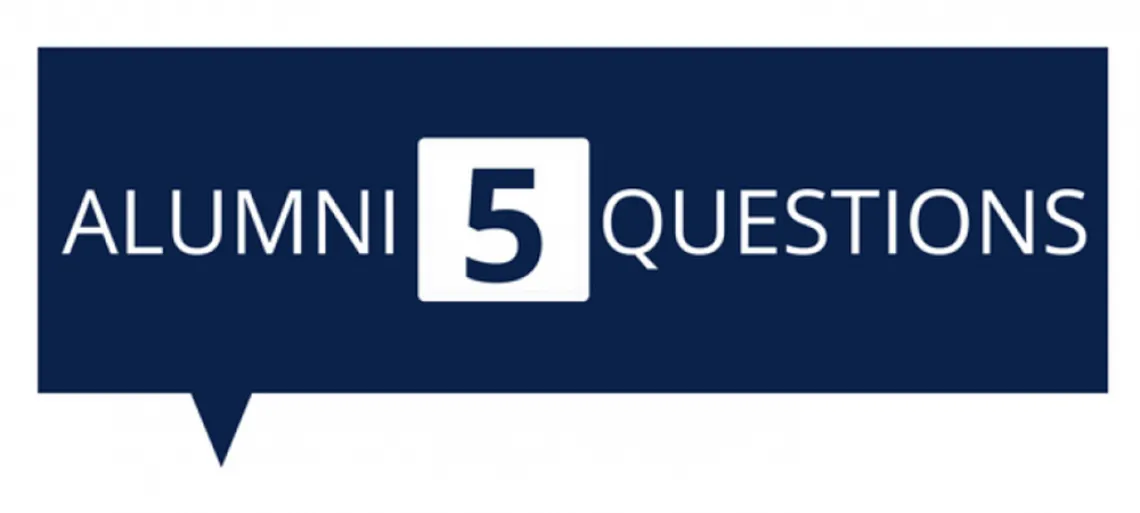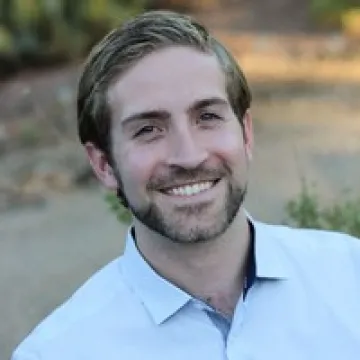Alumni Profile | Zach McClain '13

Zach is a Tucson native and 2013 graduate of the McGuire Center for Entrepreneurship and Eller College of Management. He is an experienced manager and financial executive, having held senior roles in the healthcare and telecom technology industries. His hobbies include skiing, hiking, and travel. Zach and his wife Cami are expecting their first child in June of 2018.
5 Questions with Zach McClain

Q. What is most surprising about being an entrepreneur?
A. The most surprising thing I've observed as an entrepreneur is the ability of companies to scrape by for months (or years) on about $0. Not only startups- even mature companies with millions in revenue and hundreds of employees encounter challenging times where they need to be creative and find a way to survive. There are many methods for this, but the methods are surprisingly similar regardless of company size.
Q. What was the most important lesson you learned in the entrepreneurship program?
A. The most important lesson I learned in the Entrepreneurship Program was how to model and communicate all aspects of a venture. The Program requires you to engage in the full spectrum of business functions and communicate effectively across the whole business community (investors, partners, competitors, channels, customers, etc.). For McGuire alumni, the broad, "big-picture" perspective which would otherwise take many years to obtain is already there. There is no reason a McGuire alum should be afraid of taking a senior-level role at a small to medium business, whether as a founder or as an employee.
Q. What impact has the Entrepreneurship Program had on your career or life?
A. The Entrepreneurship Program’s most significant impact on me has been the way it shaped my perspective on fear. I grew up as a total perfectionist, which is great in school but terrible for the real world. The Entrepreneurship Program indirectly (but forcefully) teaches you how to overcome fear of mistakes. Inaction is so much more dangerous than the risk of mistakes, and half the time what you think at first is a mistake will end up being more accurate and valuable anyway. Rather than exerting infinite amounts of time and stress on decisions, give it your honest assessment and move forward.

Q. What do you consider your biggest entrepreneurial success?
A. To me, my greatest entrepreneurial success has been playing key roles in three vastly different industries over the past four years. The variety of roles and industries was intentional, and in my opinion extremely valuable and enjoyable. I have been able, as a member of a few teams of outstanding people, to help define and deliver truly best-in-class products and services that have had very tangible impacts in the lives of customers. I have also gained some ability to recognize the teammates who can make that a reality. I have not yet had the pleasure of participating in a traditional exit (on the exiting side), though I hope and plan to do so within the next couple of years.
Q. What advice would you give to aspiring entrepreneurs?
A. First, you don’t have to create a startup all by yourself to be an entrepreneur. You can do that, but you don’t have to; even if you have the next great idea, it may take a couple decades to develop, so don’t work yourself to death in your early 20s. You might find better opportunities by joining an existing team, even if you have good ideas of your own. Second, you don’t have to be the ultimate “idea” person. Many people just don’t have that in their nature. If you can recognize value and potential in someone’s (or some company’s) idea and communicate the value you can add, that alone will put you ahead of the pack. Regardless of your role, it takes quite a bit of ingenuity and a strong stomach to survive the volatility of working with a young company, so at least you don't need to worry about being bored.

